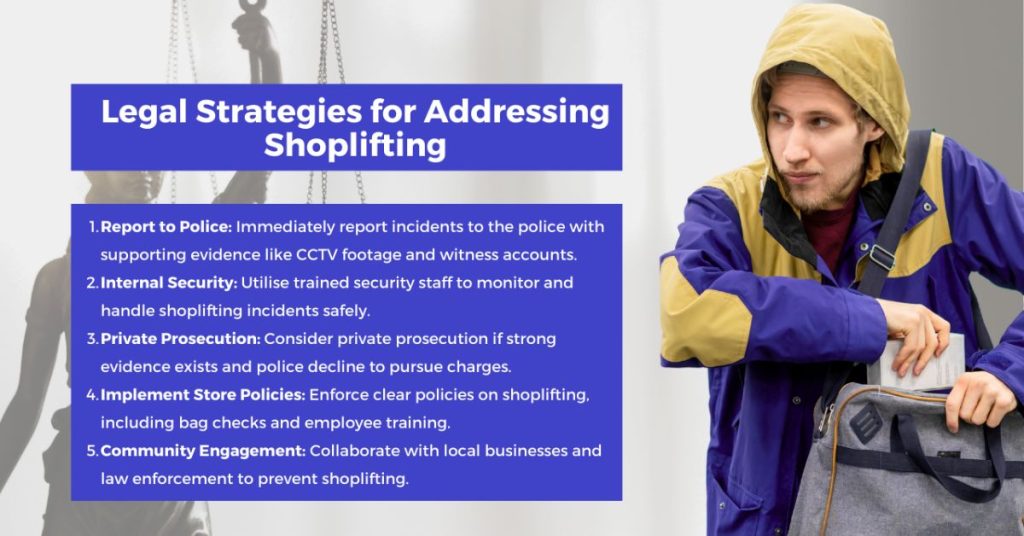Have you ever questioned whether it's appropriate to report suspected shoplifters online?
Social media's rise has revolutionised information sharing, interpersonal connections, and business protection in the current digital era. As shoplifting remains a persistent issue for many retailers, some business owners in Auckland, New Zealand, are turning to social media as a tool to identify and deter potential thieves.
However, the legality issue is a major one. Is it within your rights to post images or videos of suspected shoplifters on platforms like Facebook or Instagram? What are the potential legal repercussions and ethical considerations?
In this blog, we will look at the complexities of the issue, including the legal framework governing the publication of suspected shoplifters' images in Auckland.
Is It Legal to Post Suspected Shoplifters Online?

Although it may seem like a good idea to post suspected shoplifters online as a deterrent, it's important to be aware of the legal consequences. In New Zealand, privacy laws and defamation laws play a significant role in determining whether this action is legal.
While posting suspected shoplifters online may seem tempting, there are several legal and effective ways to handle shoplifting incidents in Auckland. Taking the appropriate strategy protects your organisation and ensures that you follow the law. Here are some recommended strategies:

1. Report to the Police: Always report shoplifting incidents to the police. This should be your first step. Any supporting documentation you have, including witness accounts, CCTV footage, and other relevant data, should be included. Involving the police lowers the possibility of taking steps that can negatively affect your business by ensuring that the situation is handled legally and professionally.
2. Internal Security Measures: Use loss prevention officers or security staff who have received the necessary training to deal with shoplifting situations. These professionals can monitor customer activity, identify suspicious behaviour, and apprehend shoplifters safely and legally.
It's also important to teach your employees how to deal with shoplifting. Ensure they understand how to report issues and deal with potential shoplifters without turning the matter more serious.
3. Private Prosecution: If businesses have strong evidence against the suspected shoplifter, they may decide, in certain situations, to launch a private prosecution. If the police choose not to prosecute, this legal option enables a firm to pursue direct action through the courts.
Even though this may be a more involved and expensive path, it may be a useful one for pursuing losses and obtaining justice. Before starting a private prosecution, it is best to speak with an attorney to thoroughly understand the procedure and possible results.
4. Implement Store Policies: Develop and enforce clear store policies regarding shoplifting. Ensure that all employees are informed of these procedures and that they are conspicuously displayed in the store. Bag checks, customer service strategies to discourage theft, and protocols for dealing with suspected shoplifters are a few examples of policies.
5. Community Engagement: Engage with the local community and other businesses to address shoplifting collectively. Businesses can make shopping safer by cooperating, exchanging information, and offering mutual help.
Enhancing security measures and offering further assistance in dealing with shoplifters can be achieved through community watch programmes and collaborations with local police enforcement.
Effective commercial CCTV installation is an essential step in enhancing your business's security. However, simply installing cameras is not enough; actively using and managing them is crucial to deterring shoplifting and ensuring your investment delivers the desired outcomes.
Here’s how you can proactively use CCTV to deter shoplifting and gather evidence:

To protect your business and stay within the law, consider the following tips:
| TIP | DESCRIPTION |
|---|---|
| Consult a Lawyer | Before taking any action, consult a legal professional to understand your rights and obligations. This ensures that your strategy for dealing with shoplifting is legal and protects you from future litigation. |
| Educate Staff | Teach your employees the appropriate and legal ways to deal with suspected shoplifters. Make sure they know how to properly approach suspects, collect evidence, and notify the authorities of incidents. |
| Clear Policies | Develop clear policies on how to deal with shoplifting and ensure all employees are aware of them. Establishing a transparent and safe atmosphere is facilitated by the regular enforcement of these policies. |
Shoplifting drains business resources, but All Round Security is here to help. We provide customised security solutions to businesses in Auckland, such as:
With All Round Security, you can protect your business while concentrating on what matters: managing the operation.
Check out the stories of real people we have helped and be one of them.
Let’s go over some frequently asked questions from Aucklanders about the legal framework in New Zealand.
Generally, it's not recommended due to privacy and defamation risks. Always get legal counsel before thinking about taking any such action.
Make a quick call to the police and provide them with any proof you have. Don't share any details regarding the incident on the internet.
Sharing CCTV images online should only be done with permission or a solid legal basis. It ought to be applied to support law enforcement.
Legal action for defamation, invasion of privacy, and possible human rights breaches are the biggest threats.
Put in place strong security measures like CCTV, security personnel, employee training, and clear procedures for dealing with shoplifting instances.
We hope this blog has empowered you with the knowledge to navigate the legalities and pitfalls of posting suspected shoplifters online. Remember that the best approach to preventing shoplifting and safeguarding the business is to concentrate on proactive security methods and alternative strategies.
Are you ready to take action? All Round Security is here to help! Our team of security experts is committed to offering Auckland businesses specialised solutions to prevent shoplifting and guarantee peace of mind.
Contact us today at 0800 425 576 for a free consultation!






Business CCTV
Residential CCTV

© 2024 All Round Security